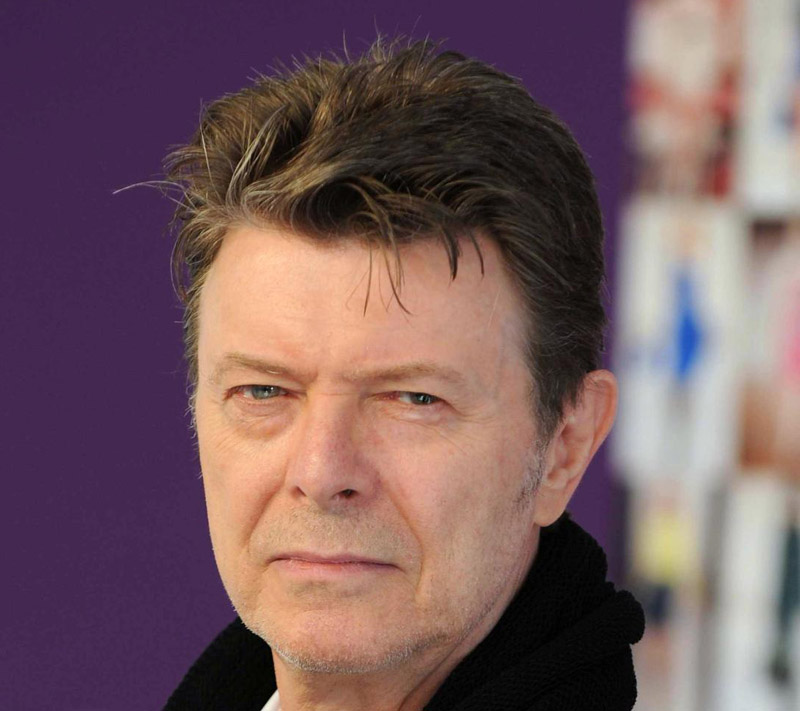Legendary singer Bowie no more
NEW YORK: David Bowie, the iconic and shape-shifting British singer whose illustrious career lasted five decade with hits like Fame, Heroes and Let’s Dance, died on January 10 after a battle with cancer. He was 69.
Representative Steve Martin said on January 11 that Bowie died “peacefully” and was surrounded by family. He had battled cancer for 18 months. “While many of you will share in this loss, we ask that you respect the family’s privacy during their time of grief,” the statement read. No more details were provided.
Bowie turned 69 on January 8, the same day he released a new album Blackstar.
The singer, who was born David Jones in London, came of age in the glam rock era of the early 1970s. He had a striking androgynous look in his early days and was known for changing his looks and sounds. He had launched a provocative alter-ego named Ziggy Stardust, and the stuttering rock sound of Changes gave way to the disco soul of Young Americans, co-written with John Lennon, to a droning collaboration with Brian Eno in Berlin that produced Heroes.
He had some of his biggest successes in the early 1980s with the stylist Let’s Dance, and a massive American tour.
“My entire career, I’ve only really worked with the same subject matter,” Bowie told The Associated Press in a 2002 interview. “The trousers may change, but the actual words and subjects I’ve always chosen to write with are things to do with isolation, abandonment, fear and anxiety — all of the high points of one’s life.”
At a concert for rescue workers after the 2001 World Trade Center attacks, his performance of Heroes was
a highlight.
“What I’m most proud of is that I can’t help but notice that I’ve affected the vocabulary of pop music. For me, frankly, as an artiste, that’s the most satisfying thing for the ego.”
Bowie was inducted into the Rock and Roll Hall of Fame in 1996, but he didn’t attend the ceremony. Madonna, another artiste who knew something about changing styles to stay ahead of the curve, accepted for him and recounted how a Bowie-concert changed her life when she attended it as a teenager. David Byrne, of the art rockers Talking Heads, inducted Bowie and said he gave rock music a necessary shot in the arm.
“Like all rock ‘n’ roll, it was visionary, it was tasteless, it was glamorous, it was perverse, it was fun, it was crass, it was sexy and it was confusing,” Byrne said.
Bowie kept a low profile in recent years after reportedly suffering a heart attack in the 2000s. He made a moody album three years ago, The Next Day, his first recording in a decade which was made in secret in New York City. Blackstar, which earned positive reviews from critics, represented yet another stylistic shift, as he gathered jazz players to join him.
He released a music video on January 8 for the new song Lazarus, which shows a frail Bowie lying in bed and singing the track’s lyrics. The song begins with the line — Look up here, I’m in heaven.
Tributes poured in for the singer. British astronaut Tim Peake tweeted about his sadness from outer space aboard the International Space Station, saying “his music was an inspiration
to many”.
British Prime Minister David Cameron tweeted that Bowie’s death is “a huge loss.” He wrote he had grown up listening to and watching Bowie and called the singer a “master of reinvention” and a pop genius who kept on getting it right.
Bowie felt uneasy about some of his greatest material, once embarking on a “greatest hits” tour saying it would be the last time performing much of his old material. He later relented, however.
“I’m not a natural performer,” he said in the 2002 interview. “I don’t enjoy performing terribly much. Never have. I can do it and, if my mind’s on the situation, do it quite well. But five or six shows in, I’m dying to get off the road and go back into the studio.”



